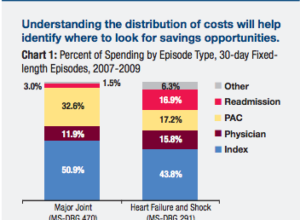 Having an aging parent, spouse, or elderly loved one in the hospital can be a trying experience filled with stress and many complex, moving parts. When the time comes for discharge its important you have a plan for your loved one’s return home or to an alternate setting.
Having an aging parent, spouse, or elderly loved one in the hospital can be a trying experience filled with stress and many complex, moving parts. When the time comes for discharge its important you have a plan for your loved one’s return home or to an alternate setting.
 Having an aging parent, spouse, or elderly loved one in the hospital can be a trying experience filled with stress and many complex, moving parts. When the time comes for discharge its important you have a plan for your loved one’s return home or to an alternate setting.
Having an aging parent, spouse, or elderly loved one in the hospital can be a trying experience filled with stress and many complex, moving parts. When the time comes for discharge its important you have a plan for your loved one’s return home or to an alternate setting.
A hospital discharge planner, who may be a registered nurse or a social worker, is responsible for coordinating your loved one’s transition from the acute care hospital or medical center to an appropriate setting.
From the moment your parent is admitted to the hospital, the discharge planning process begins. Throughout the length of stay, maintaining open communication with the care team and the discharge planner is a critical step in ensuring your loved one’s comfort and preventing a possible readmission or rehospitalization.
If your parent is returning home after discharge, be prepared with this comprehensive list of questions to ask the discharge planner.
About your loved one’s health condition:
- Please explain the diagnosis at discharge.
- What milestones and setbacks can we expect during recovery?
- What follow-up appointments are needed and with whom? Who is scheduling them?
- Where will these appointments take place? At home? In the office?
- Who can I call with questions?
- What types of health care services have been prescribed? (physical therapy, home health service)
- How long are these services needed for?
- Who is paying for them?
About scheduling:
- What date and time will my loved one be discharged?
- How do you suggest the transfer to the home be made (car, taxi, ambulance)? Is an escort necessary?
About the home environment:
- What equipment will we need in the home? (hospital bed, oxygen tank, wheelchair, bedside commode)
- Can you demonstrate how to use equipment we are unfamiliar with?
- Who pays for this equipment?
- How do reorder supplies and who do we call with problems?
About providing care:
- What type of supervision and level of personal care will my loved one need?
- Can you or the appropriate person teach me techniques for skills I need to perform such as giving injections or changing dressings?
- What, if any, special dietary restrictions does my loved one have?
About medications:
- What medication has been prescribed?
- What side effects are associated with these medications? (falls, confusion, nausea)
- How should these medications be taken? With or without food? Crushed, dissolved, chewed?
What other questions should you ask before an elderly loved one is discharged from hospital to home?






